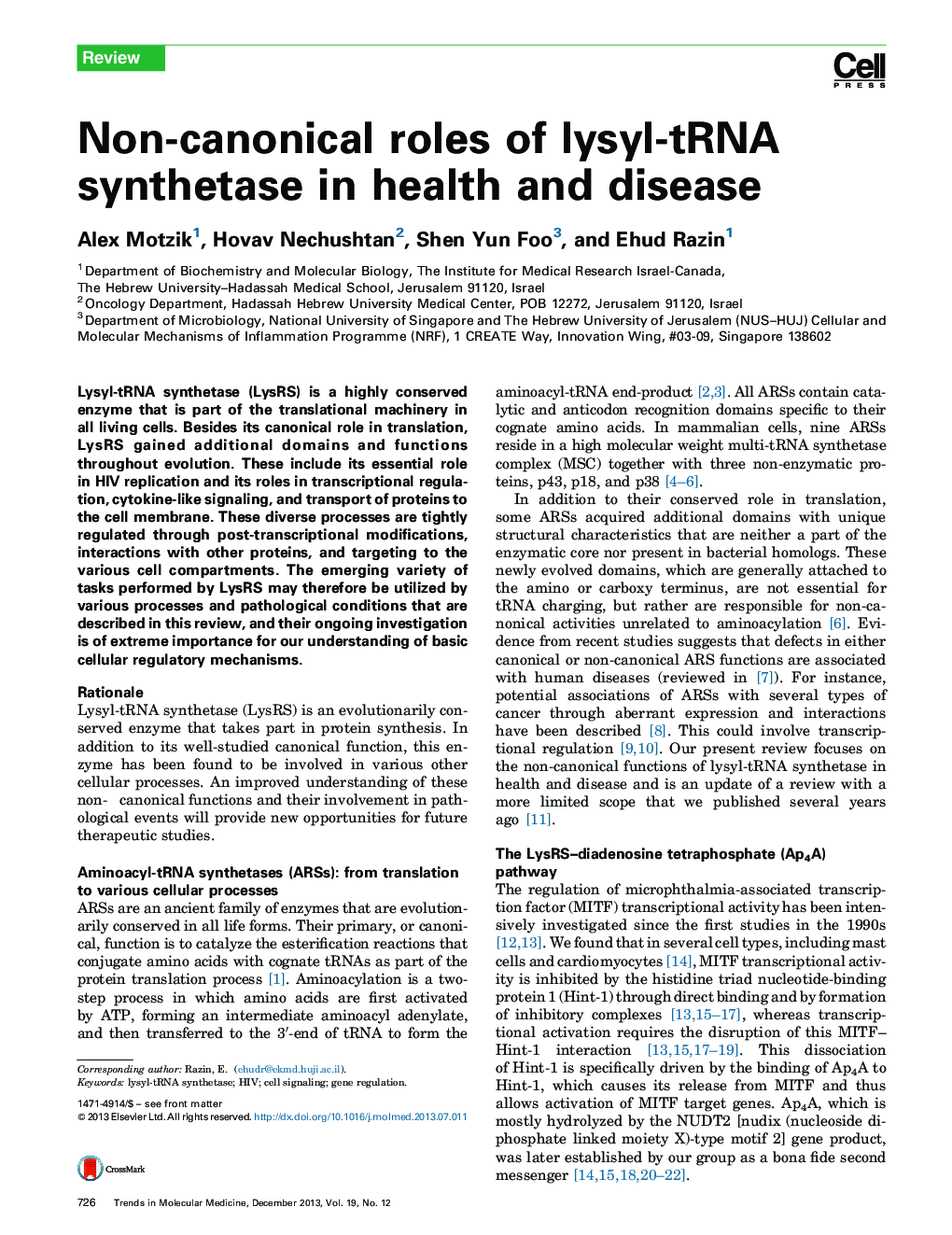| Article ID | Journal | Published Year | Pages | File Type |
|---|---|---|---|---|
| 2838550 | Trends in Molecular Medicine | 2013 | 6 Pages |
•Recent studies have discovered diverse cellular processes in which LysRS is involved.•These include HIV replication, signal transduction, protein transport, and neurodegenerative disease.•Improved understanding of non-canonical functions of LysRS will provide new opportunities for therapeutic efforts.•Understanding these functions is crucial for targeting pathology while sparing physiologically important functions.
Lysyl-tRNA synthetase (LysRS) is a highly conserved enzyme that is part of the translational machinery in all living cells. Besides its canonical role in translation, LysRS gained additional domains and functions throughout evolution. These include its essential role in HIV replication and its roles in transcriptional regulation, cytokine-like signaling, and transport of proteins to the cell membrane. These diverse processes are tightly regulated through post-transcriptional modifications, interactions with other proteins, and targeting to the various cell compartments. The emerging variety of tasks performed by LysRS may therefore be utilized by various processes and pathological conditions that are described in this review, and their ongoing investigation is of extreme importance for our understanding of basic cellular regulatory mechanisms.
